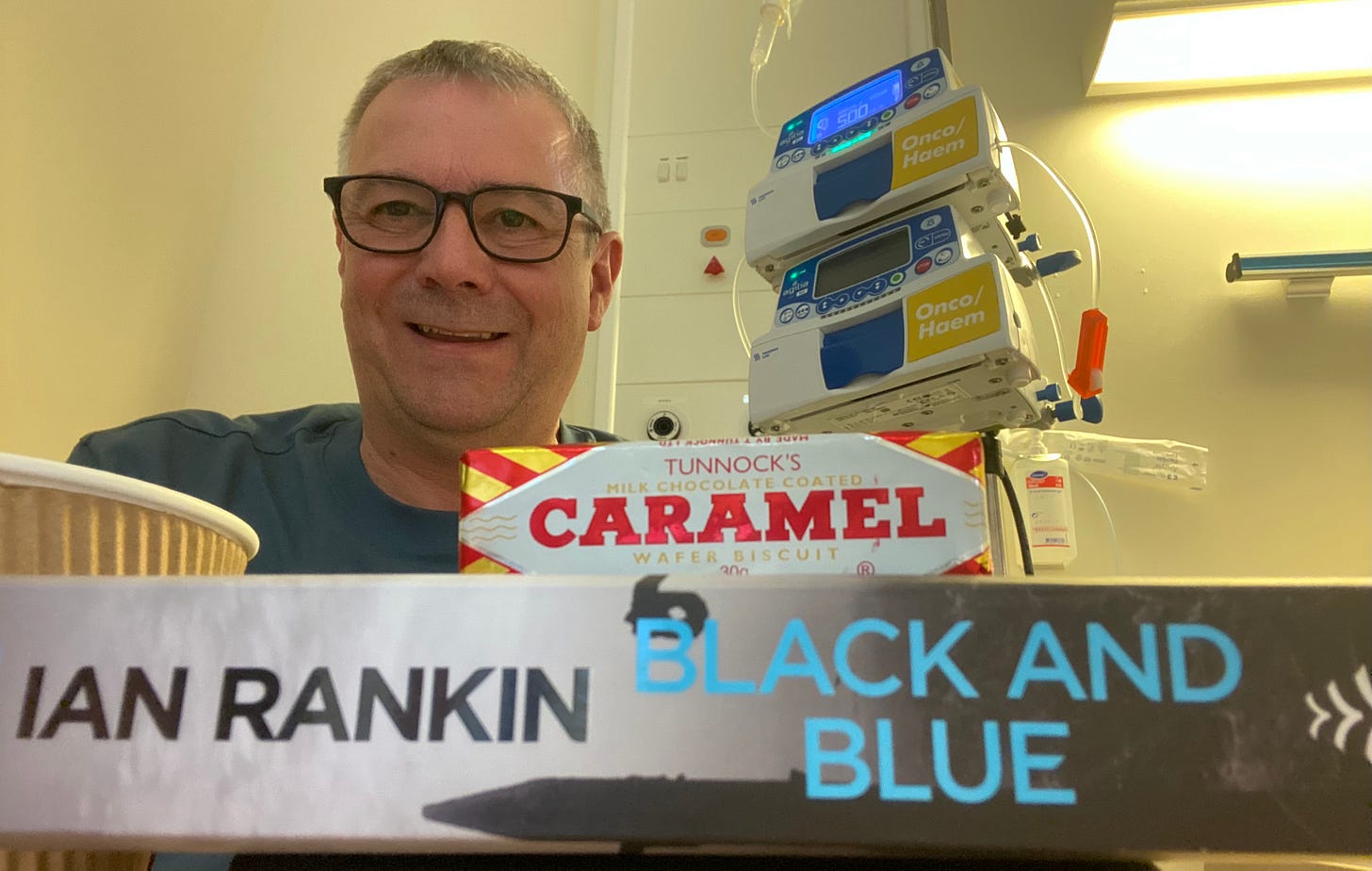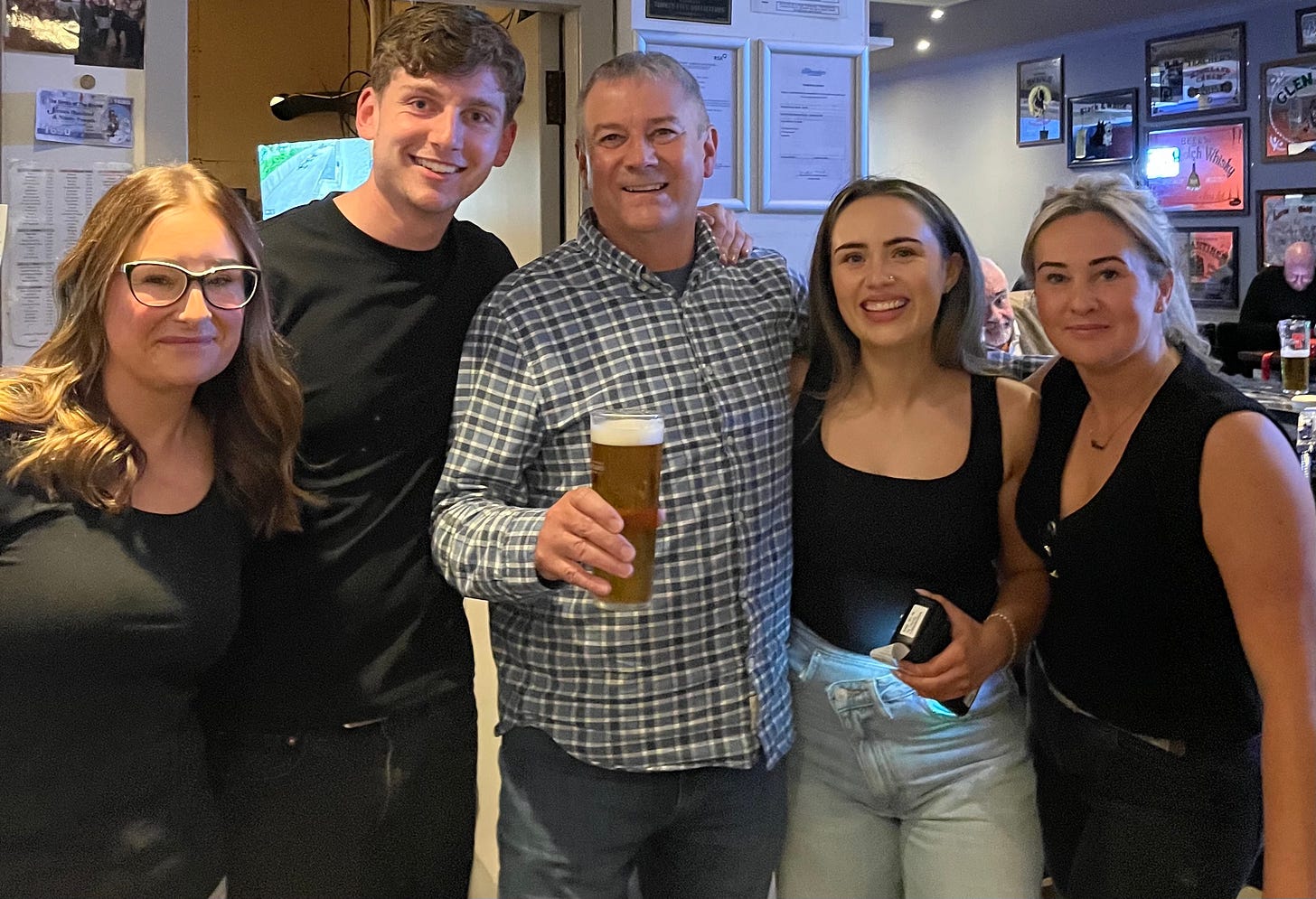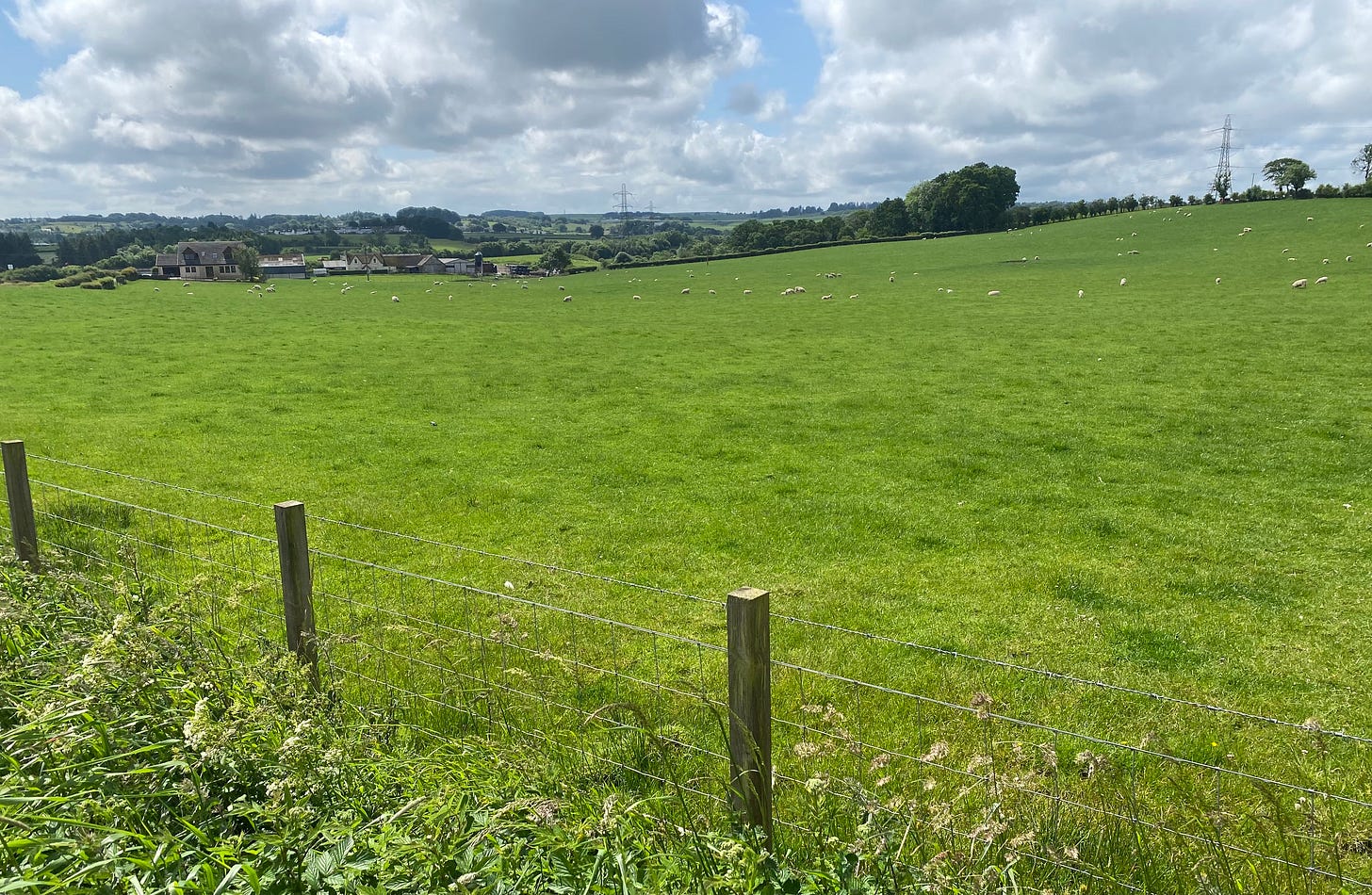Cheers, everyone!:
Before the treatment began, just three and a half weeks after I received the news of the diagnosis, there was one last chance to go with my family to our local pub and enjoy the company of our friends and a few final beers.
It was great to share a few laughs with pals, with plenty of gallows humour as well as heartfelt words of good wishes.
To avoid the risk of infection and improve the chances of successful treatment, I’m going to stop socialising and various activities such as golf or helping out at our village church, and I’m giving up the booze.
My consultants tell me that infections can cause the treatment to be suspended and alcohol can hinder the effectiveness of the chemo and radiotherapy.
So, if it’s a choice of still being here in six months or taking unnecessary risks, well, the decision really is a no-brainer.
Meanwhile, the bar staff made sure a got a great send-off before I return post-treatment.
A Grand Day Out:
I didn’t exactly have a great night’s sleep before the daunting first day of my treatment – made up of both a radiotherapy “zap” followed by eight hours hooked up to drips for the first dose of chemotherapy.
But the experience turned out to be a memorable one for all the right reasons.
First up, I was met by an information and support radiotherapist who I had earlier been put in touch with by the Maggie’s Centre team based at the Gartnavel NHS campus in Glasgow that I’m attending.
With a reassuring smile on her face, she brought me up to speed with what to expect from the session and the team carrying out the radiotherapy were just as kind and thoughtful.
And despite my apprehension about being strapped down to the table by the “Hannibal Lecter” mask, as I’m somewhat claustrophobic, the “zapping” seemed to be over and done with quite quickly.
Maybe it was because I was tired, but I actually felt quite relaxed.
And while I made my way from the basement to the day care chemo unit on the fourth floor, the radiotherapist headed to the pharmacy for me to check all the medications I would need were in good order.
Up in the unit, I was met with a flood of smiles from the nursing staff and told to take any of the individual rooms that were free.
In no time at all, my PICC “lifeline” was hooked up to a drip that had multiple bags containing all sorts of solutions swapped over throughout the day as I sat comfortably in an armchair.
Then came the unexpected treats, courtesy of the Beatson Cancer Charity tea trolley team. They gave me a great cup of coffee and a Tunnock’s Caramel Wafer – delivered with a good bit of compassionate and humorous chat.
The Beatson team returned twice more during the day, armed with leaflets to help me find out what the charity can do for cancer patients, along with soup and sandwiches for lunch, as well as an afternoon cuppa and a chocolate biscuit.
While I sat there like Lord Muck, reading my book, I thought to myself: “I don’t get waited on like this at home!”
And, all the while, the smiling nurses would come in to check I was OK and change over a drip bag whenever needed.
I even had a phone call from my haematologist, based in the New Victoria Hospital across town, to check that everything was going well.
As I left, the team asked if the day had been OK for me.
My reply: “I was dreading today but, you know what, I’ve had a thoroughly enjoyable time. Thank you so much!”
Bedtime reading and bizarre night-time feelings:
When I left the day care unit, I was given a huge bag of medication to help me get through both the radiotherapy and chemotherapy, along with a raft of leaflets to read.
I sat up until midnight wading my way through the advice as well as noting any common side effects I might expect from the various tablets, lotions and potions I’d been given.
It might seem like a waste of time but, for me, it later helped to explain the headaches I got after taking the anti-nausea medications, for example.
More immediately, though, I awoke at 3am after that first dose with what I can only describe as a “chemo buzz” – my head full of positive thoughts and ideas I wanted to express in this blog. By 4.30am, this had turned to a churning stomach and lots of negative thoughts.
The next day, post-radiotherapy session, when the mask had felt a lot tighter, I had constant hot flushes and headaches but without any indication of a soaring temperature, according to the thermometer.
All was explained on my third day, when I went to provide blood tests and have another “zap”.
Apparently, the steroids in the chemo treatment get you buzzing and the funny tummy was nausea before I could take my first meds later that morning.
My mask had felt tighter on day two because my face would have been swollen by the litres of liquid pumped into me for the chemo session, hot flushes are quite common after radiotherapy and the headaches were, as I said, caused by the anti-nausea drugs as well as my own stress.
After the nurses had explained the causes, assured me I didn’t already have an infection and asked if my fears had been allayed, I said: “Thank you so much. Only this is all so new to me and I’m quite a nervous, anxious individual.”
With a raised eyebrow, one of them laughed: “Don’t worry, we’d already noticed that!”
I skipped out of the hospital quite the thing.
The long good Friday:
The final day of my first week of treatment threw two curved balls at me.
First up, I had to stay on later at the Beatson centre at Gartnavel that I was visiting for blood tests and a radiotherapy session.
This was because the team wanted to make sure that my kidney function and blood tests were all as good as they could be after I told them about a few symptoms I’d been experiencing.
But once those all came back as being OK, I went home to relax, happy with my progress.
Then came the second curved ball – a phone call from a registrar at the New Victoria Hospital day unit saying they had discovered signs that I could be in danger of thrombosis and so needed medication immediately.
Panicking, I raced to the hospital and arrived at the clinic to find a full team of medics ready and waiting to treat me – armed with laughter and banter, as well as the necessary medication.
I was on a drip for about two hours as these dedicated NHS staff gave up their Friday evening to ensure I got the treatment I needed. Incredible!
As a few of them remarked, you don’t go into a career like that if you don’t care about people and aren’t prepared to put in unexpected extra hours.
As I voiced my fears about the whole scenario, the registrar said to me: “We’re all supporting you every step of the way, Giles. You’ve completed week one – stay positive, because you’ve done really well.”
How uplifting was that for a Friday night?
One day at a time:
So, I’ve completed the first five days of my treatment plan, ticking off each hospital visit on the printed schedule I have each day.
Yes, I know the treatment will get harder to cope with in the weeks ahead.
But that doesn’t mean this first week hasn’t been without its moments of stress and panic about the way my body is reacting.
I also hate not being in control of the situation and have a real fear of the unknown path that lies ahead.
Yet the tidal wave of support, positivity and kindness of spirit from friends, family, colleagues and all the NHS staff carries me forward with a strong belief that this lymphoma can be overcome.
I’m also discovering a “we’re all in this together” camaraderie with other cancer patients at the hospital, whose faces are now becoming familiar.
I plan to enjoy a few strolls along the lanes near my home this weekend – building myself up for the next five days of treatment.
I hope other cancer sufferers can be buoyed by similar feelings of optimism.







You’ve got this Giles! It was great to read in an earlier post that the cancer seems to be confined. Totally rooting for you and enjoying your blogs! Keep writing it out. Sending love to you and your wife and daughter x
So good to see you are facing this so positively , can only imagine how difficult it is to get your head round. Glad you are being looked after so well by NHS , they really do a great job